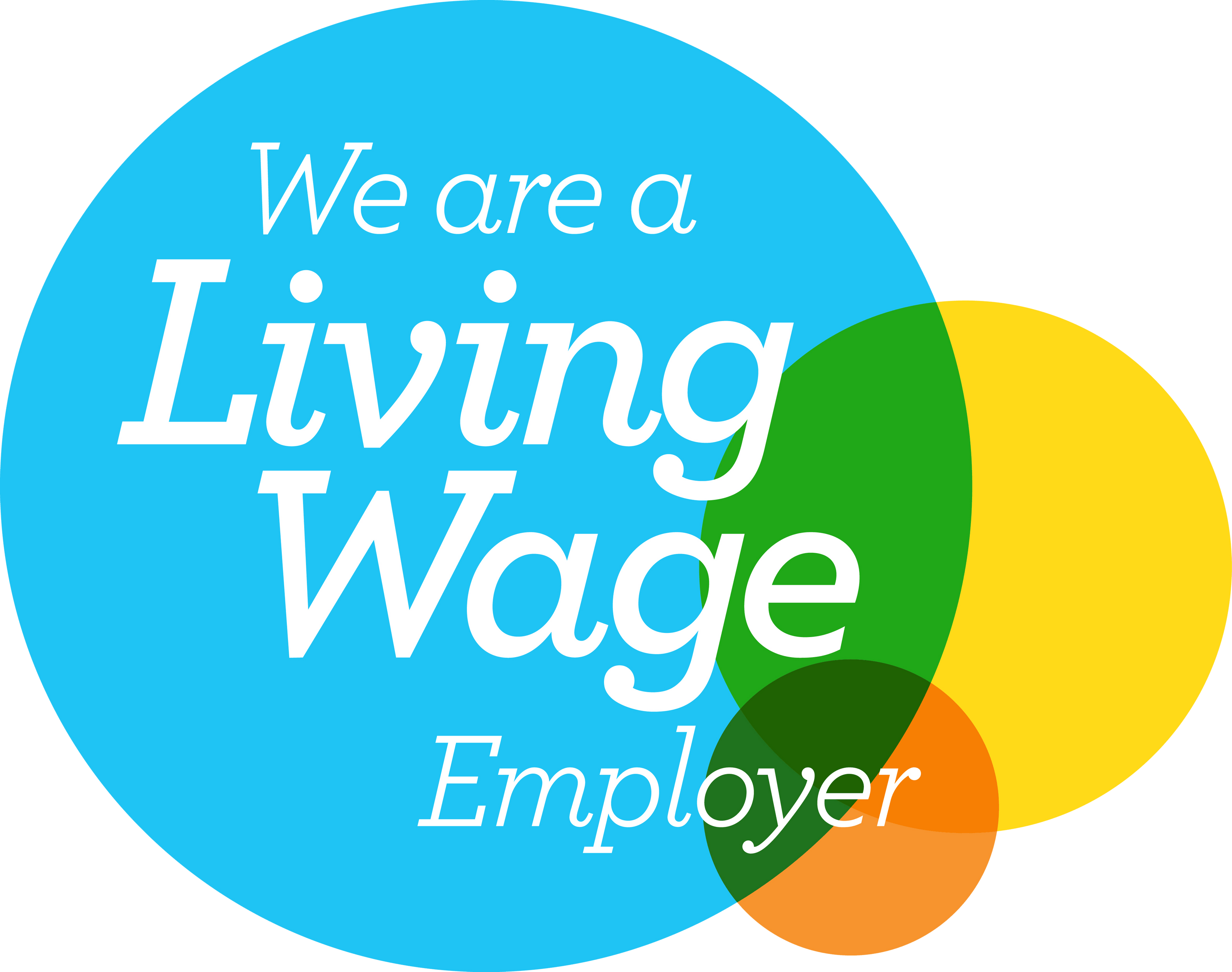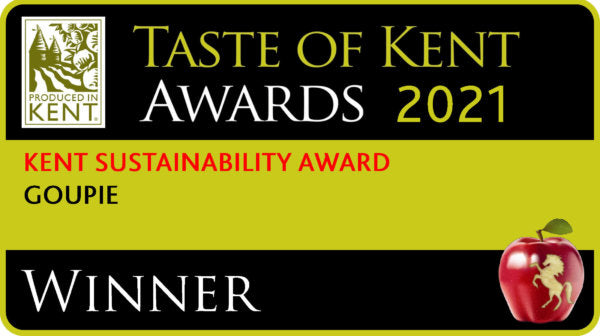At Goupie, we've tried to be on a constant journey of improvement with regards to sustainability. We've consistently researched alternative packaging materials, ingredients, accreditations and production methods, making any changes we found viable as soon as possible. Despite this, there are still a few challenges that we've been unable to overcome, and we're starting to get a little frustrated by it. It occurred to us, that rather than working on these issues behind the scenes, we should bring them to the forefront of everyone's minds. Perhaps our greater community of Goupie Groupies can help us solve the problems. Maybe we'll even be able to help other businesses going through the same thing!
Problem 1: Glassine Waste
At Goupie, most of our products use labels. They're a cost-effective way to distinguishing between products and getting the necessary information displayed. You can run smaller print runs of a variety of options, and they come in compact rolls allowing for efficient storage. Our labels are made from a compostable paper, with vegan inks. This works great for the product at its end of life, as customers are able to either recycle the entire box with local collections, or add them to their own home compost. So, what's the issue you might ask?
The issue is the backing material, or release liner. This is usually a form of paper and plastic composite. Ours is glassine, which is the most common, but there are variations. Most customers will be familiar with the material if they've ever peeled a sticker and seen the shiny material below. Once we've used the label on our products, we are left with a fair amount of the backing material. It's the largest 'waste' product we have. Currently, we reuse it as packing material. This is a great solution, as it means we don't need to use virgin materials, and the protected products means less wastage. However, we are also aware that it is very difficult to recycle glassine waste in the UK. If we have found it impossible for our own small business to recycle it, then what chance do our customers have? We don't want to be moving a problem on if we can help it.
We've asked numerous label manufacturers if there is an alternative material, or a collection service for the waste. Unfortunately, there seems to be no alternative yet, and the collection services would require us to be able to crush our waste and store it in a way which we can't do in our small unit. They also require a LARGE quantity, which we are not anywhere near reaching. We've also only ever found one recycling centre in Europe, and this was in Germany. That's not to say they don't exist in the UK, it's just to say we can't find them! We've posted the question in various sustainability and small-business groups, as well as asking recycling companies such as Terracycle, with no solution.
All of this leads us to believe that there simply isn't an accessible, or known, alternative to the glassine waste problem. That concerns us greatly. We are by no means a large producer, or the only company using labels. If we have this much glassine waste from our production, how much does the UK have as a whole? Even consumers use labels at home, and if the only option is disposing of this waste in landfill, just think about how much that would be.
So this is is our first open problem to you: do you know of any way to dispose of glassine waste? Alternatively, do you know of any alternative material for label backing that is easier to recycle? What we want, is a circular system for all of our waste. As a small company, we constantly come up with cost or information barriers, and the label backing waste is an excellent example of this.
Problem 2: Global Economy Miles
The next problem is probably more of an ethical conundrum than it is a problem which we believe can be solved outright. This relates to the inherent import and export miles required to manufacture a product. Although we source locally wherever possible, the simple fact of the matter is that cocoa doesn't grow in the UK, and we will therefore always need to import it. In our global economy, this is very much expected, but we can't help but wonder sometimes if the potential cost of this is worth it?
Likewise, we have customers who have warehouses in separate locations to their stores. In the past, this has meant us shipping goods from Kent to Milton Keynes, only for them to be shipped back to the 20 stores in Kent! Absolute madness if you ask us, but this is the logistical reality for larger businesses.
As these miles can't be avoided, we are looking at some form of carbon offsetting. However, we're skeptical about how useful these initiatives can be, and we don't want to simply sign up to a scheme to tick a marketing box. We want to know it's making a difference. We would love to hear your thoughts on carbon offsetting, and specifically of any schemes which you believe are making an active difference.
Problem 3: Keeping prices down, but standards up
Our next issue is also not one which we think can be easily fixed; the balance between price and quality. Every decision we make as a business has a cost implication. Our compostable bags cost us almost 6x more than the plastic alternative. This is just one component of our packaging, and so you can imagine the cost implication once we've looked at every ingredient, every piece of packaging, each staff benefit and every shipping option for all of our products. Making the right choice, or using the best ingredients has a real impact on our bottom line and feasibility as a business.
The obvious solution to this is to raise our prices to reflect the true cost. Unfortunately, this also has an impact on how much product we will realistically sell, and forces us into only catering for a privileged few who can afford it. We've kept our prices as low as possible to avoid this (probably to our own detriment!), but in hard economic times, this becomes less and less possible. It also seems fundamentally wrong that choosing a solution which works better for the planet should produce negative impacts on our business and be treated as a 'luxury'.
We would love to see a shift in society with regards to priorities. Buying less, but of better quality, and rewarding sustainable choices. This change in mindset is our responsibility as business owners, but it is also a consumer and government responsibility. The question is, how can we all work together to enact this change?
Don't get us wrong, there is a definite movement towards this goal, but it simply isn't happening fast enough. We only need to look at businesses who have struggled in recent months to keep going. The Body Shop, Big Wild Thought, Veggie Pret, to name a few. All of these businesses which had a focus on sustainability and ethical production have been unable to continue. We don't know all the ins and outs of these specific businesses, but if they can't make it work, what hope is there for the rest of us?!
We would love to hear your thoughts on any of the above issues, or any other issues you think we can address as a business. We are a small team and we can't do it all by ourselves, but perhaps with our greater community's help, we can work it out!







1 comment
Would it be possible to use rice paper ? I have no clue as to how but thought it may be an option